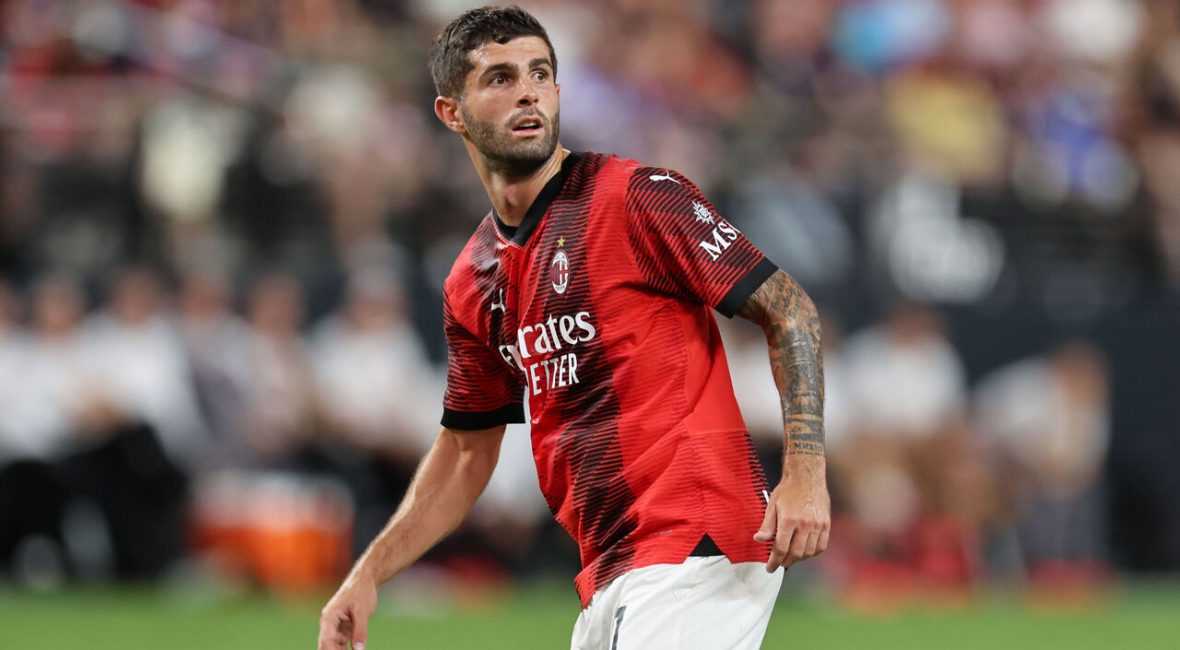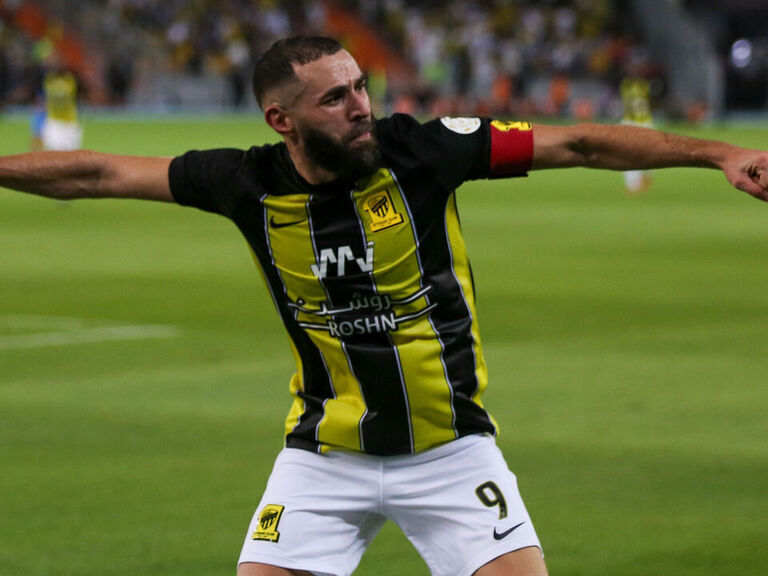With the summer transfer window officially shut, theScore ranks the 25 best moves made across the game’s top leagues. For more on all the marquee deals struck by Saudi Arabian clubs – excluded from this list – tap here.
25. Mateo Kovacic ?? Manchester City
- Signed from Chelsea for reported £25M fee
This is far from the flashiest signing of the summer, but it could end up being one of the most impactful by season’s end. Croatian stalwart Kovacic, perennially underrated during his career, is a much different midfielder than the one he’s replacing in Ilkay Gundogan, but his incisive dribbling will come to the fore playing under Pep Guardiola. His ball progression through midfield will create plenty of chances for his prolific teammates, too.
24. Folarin Balogun ?? AS Monaco
- Signed from Arsenal for reported €40M fee
In a refreshing role reversal, a Ligue 1 club nabbed an exciting young player away from one of the Premier League’s top sides. Balogun, who registered 21 goals with Reims last season during a breakout loan stint in France, wouldn’t have been afforded the opportunities his burgeoning talent deserved at Arsenal this year. Monaco, sensing the opportunity, swooped in to take full advantage. A shrewd operation by the principality-based outfit.
23. Arda Guler ?? Real Madrid
- Signed from Fenerbahce for reported €20M fee
This could be a deal that every other club looks back on in a few years with serious envy. Guler, 18, is a prodigious Turkish sensation who’s been tipped for superstardom. Prior to an early-season injury, he earned rave reviews from the Real Madrid coaching staff and stood out in training despite being surrounded by some of the best, most decorated players in the world. Snatching him from under the nose of bitter rivals Barcelona is an added win.
22. Lois Openda ?? RB Leipzig
- Signed from Lens for reported €43M fee
Considering their high player turnover rate each year, Leipzig need to be one of the most astute operators in the transfer window to keep reloading their squad. They can’t afford to miss. They rarely do. Openda, signed to replace last season’s top scorer Christopher Nkunku, arrives after leading Lens to a Champions League berth with a club-record 21-goal season, and will look to replicate that output at the high-octane German club.
21. Marcus Thuram ?? Inter Milan
- Signed from Borussia Monchengladbach on free transfer
Inter Milan’s transfer window was more notable for the players they didn’t get than the ones they did actually bring aboard. But their marquee addition of the summer was highly impressive, as the cash-strapped Nerazzurri beat out several other suitors for French international forward Thuram. He’s settled quickly and already looks to be forging a strong understanding with striker partner Lautaro Martinez.
20. Christian Pulisic ?? AC Milan
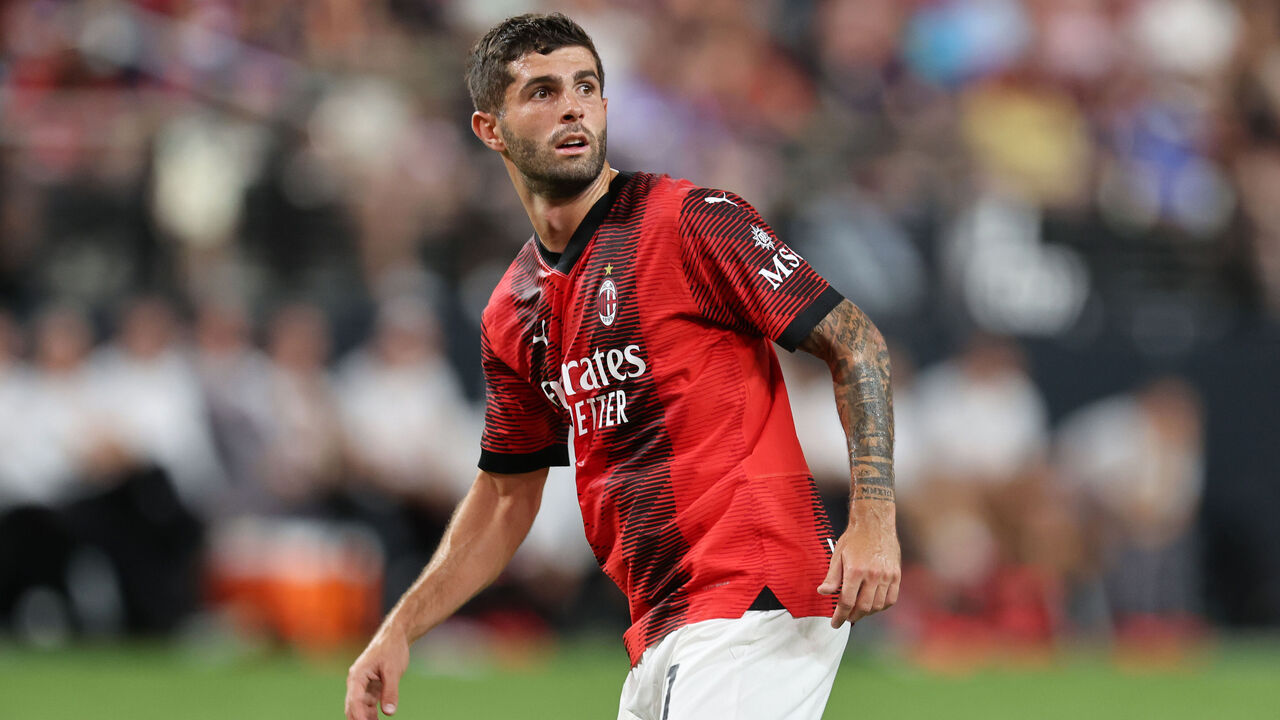
- Signed from Chelsea for reported €20M fee
There were concerns that AC Milan would take a step back after selling beloved midfielder Sandro Tonali to Newcastle, but the Rossoneri turned a potential negative into a positive by completely reloading their squad using the funds from the Italian’s transfer. Of the 10 new faces to arrive at San Siro, Pulisic has the most upside. If he can stay healthy, the American forward will thrive in Serie A. It’s a worthwhile risk for a nominal fee.
19. Romeo Lavia ?? Chelsea
- Signed from Southampton for reported £53M fee
Say what you will about Chelsea’s transfer strategy under Todd Boehly and Clearlake Capital – there’s plenty to pick apart and question – but in beating Liverpool to Lavia’s signature, the west London side procured a supremely talented midfielder who caught the eye of several top teams during his time at Southampton. The press-resistant Belgian teenager is an investment in the future.
18. Manuel Ugarte ?? Paris Saint-Germain
- Signed from Sporting CP for reported €60M fee
Paris Saint-Germain have been screaming out for this type of signing for years. A feisty, no-nonsense defensive midfielder, Ugarte adds a steely resolve the French club has long been lacking. In beating Chelsea to sign the 22-year-old Uruguayan, PSG eschewed their typical headline-grabbing transfer strategy for a more prudent approach that should pay dividends both in the immediate term and in the future.
17. Sofyan Amrabat ?? Manchester United
- Signed from Fiorentina on initial loan
It took until deadline day, but Manchester United landed someone capable of rectifying the glaring midfield issues that became apparent at the beginning of the season. Amrabat, whose move could cost around €35 million if made permanent, is precisely the type of combative presence the Red Devils are missing in the center of the pitch, especially as Casemiro ages and looks more rigid with each passing week. The Moroccan will provide a huge boost.
16. James Maddison ?? Tottenham Hotspur
- Signed from Leicester City for reported £40M fee
New defender Micky van de Ven has the potential to be a Tottenham fan favorite – he has some similarities to Toby Alderweireld, except with an electric pace. But James Maddison is already nearing terrace hero status after easily slotting into Ange Postecoglou’s starting lineup. “I’m overjoyed at the footballer I’ve got,” Postecoglou said of his playmaker after Spurs’ third league match of the season.
15. Kim Min-jae ?? Bayern Munich
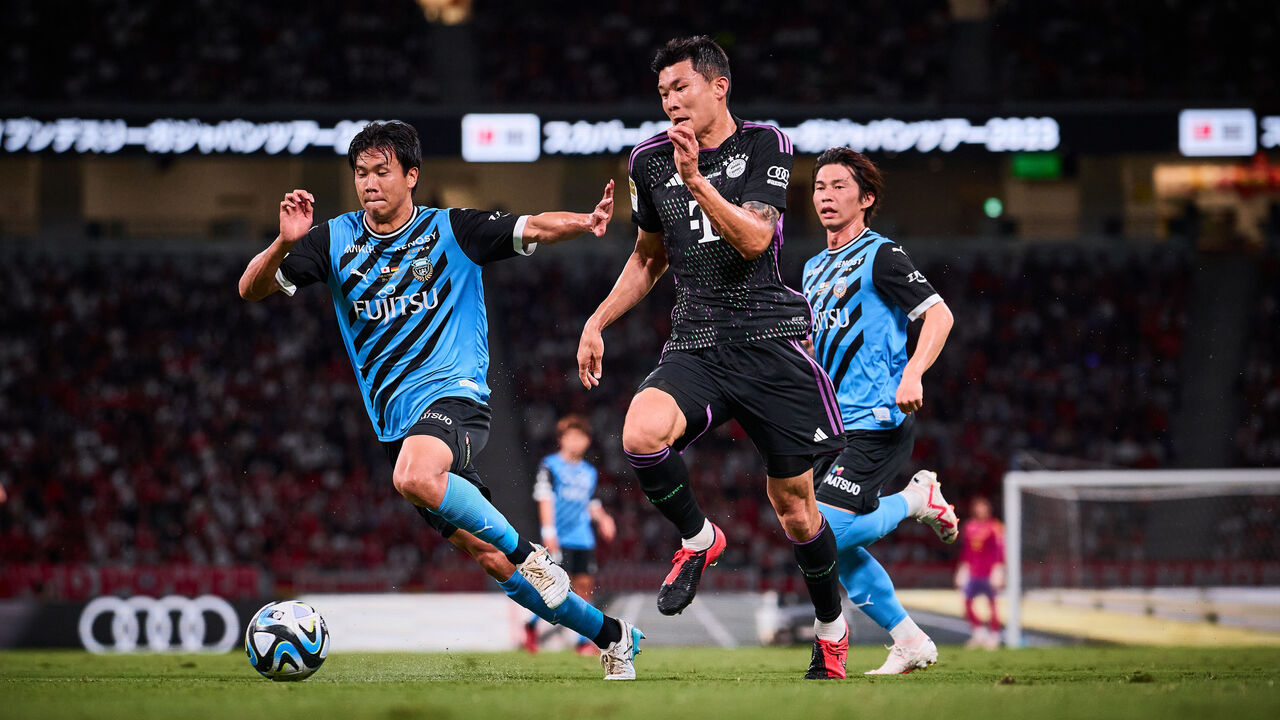
- Signed from Napoli for reported €50M fee
Kim has gone from relative unknown to one of the best central defenders in world football in the blink of an eye. The imposing South Korean was playing in China as recently as 2021, but after being a central figure in Napoli’s historic title victory last season, he’s ascended to one of the most storied clubs in the world at Bayern Munich. A supreme athlete, the 26-year-old has quickly established himself as a starter under Thomas Tuchel.
14. Andre Onana ?? Manchester United
- Signed from Inter Milan for reported €52.5M fee
David De Gea’s drawn-out departure felt a little unceremonious, especially after his Manchester United teammates named him the club’s Player of the Year for four separate seasons due to his inspired displays. But it had to happen. Onana’s ease in possession allows Erik ten Hag’s attacks to start at the base of his lineup, and the goalkeeper’s pace and anticipation help the team deal with the danger of long balls over the defenders’ heads.
13. Moussa Diaby ?? Aston Villa
- Signed from Bayer Leverkusen for reported €60M fee
Few deals signify the ever-growing financial might of the Premier League more than Aston Villa’s opulent signing of Diaby, a French international winger who would improve many of the top sides in the world with his blend of blistering pace, trickery in one-on-one situations, and creativity and poise inside the opposition penalty area. The 24-year-old Parisian will be a nightmare for opposing full-backs during his spell at Villa Park.
12. Alexis Mac Allister ?? Liverpool
- Signed from Brighton & Hove Albion for £35M fee
In a market distorted by the heavy spending of Premier League rivals Chelsea, Liverpool paid a meager £35 million for a World Cup winner. True, Mac Allister’s price could inflate to £55 million after add-ons, but that’s still decent value for a player who can fulfill any role in the central midfield and whose high work rate, ability to dodge and ride challenges, and obsession with progressing the ball make him tailor-made for Jurgen Klopp’s outfit.
11. Moises Caicedo ?? Chelsea
- Signed from Brighton & Hove Albion for reported £115M fee
It was a wild summer for Caicedo, who tried to engineer a move away from Brighton, then appeared set to join Liverpool in a late twist, only to reject the Reds and finally get his desired switch to Stamford Bridge in a British-record transfer. It’s been a rough start to his Chelsea career, but the Ecuadorian is indisputably a brilliant player, and, together with Enzo Fernandez, will lock down Chelsea’s midfield for many years to come.
10. Mohammed Kudus ?? West Ham United
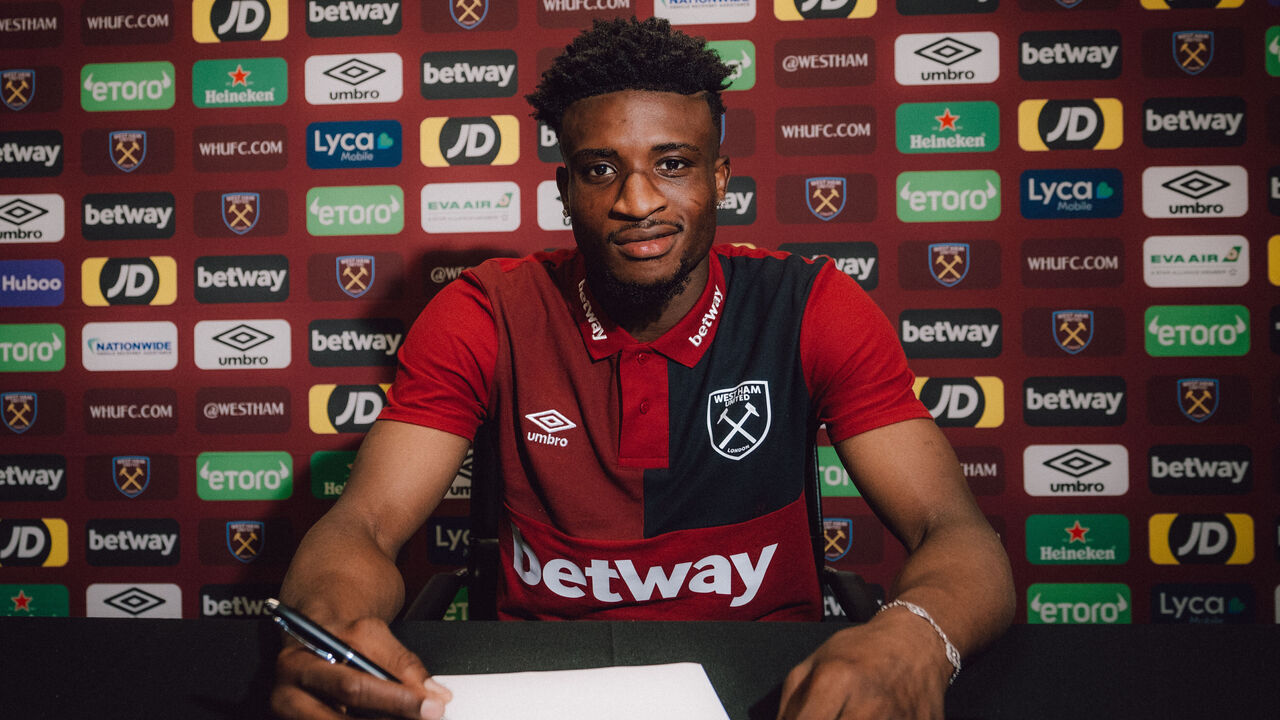
- Signed from Ajax for €43M fee
What a steal. Kudus, 23, was one of the most desired players to emerge from Ajax’s esteemed conveyor belt of talent in recent years, and West Ham won the sweepstakes to add the electrifying attacking midfielder to their ranks. What once looked like a horrible transfer window blighted by a lack of signings turned out quite well for West Ham, who also nabbed free-kick extraordinaire James Ward-Prowse for £30 million.
9. Christopher Nkunku ?? Chelsea
- Signed from RB Leipzig for reported £63M fee
It’s a shame that Nkunku suffered a serious injury in preseason. The French forward was primed to take the Premier League by storm. His absence has been keenly felt by Chelsea to begin the campaign, as the Blues lack a cutting edge in the final third without their marquee attacking acquisition in the lineup. His return can’t come soon enough, both for Mauricio Pochettino and neutral onlookers eager to see him shine in England.
8. Harry Kane ?? Bayern Munich
- Signed from Tottenham Hotspur for reported €100M fee
It took them over a full calendar year, but Bayern Munich finally replaced Robert Lewandowski. They had to work for it, haggling long and hard with notoriously tough negotiator Daniel Levy before finally striking a deal for Kane. Bayern broke from their own policy by spending €100 million on a late-career player, but Kane gives the team a familiar focal point that was clearly lacking last season without Lewandowski. His first trophy beckons.
7. Randal Kolo Muani ?? Paris Saint-Germain
- Signed from Eintracht Frankfurt for reported €90M fee
Paris Saint-Germain’s biggest success this summer was retaining Kylian Mbappe for another year and mending a seemingly fractured relationship. In anticipation of the French superstar’s inevitable departure at some point, PSG secured their attacking core of the future by signing Goncalo Ramos, Ousmane Dembele, and the impressive Kolo Muani. The €90-million forward has all the tools to be the focal point of PSG’s new-look forward line.
6. Josko Gvardiol ?? Manchester City
- Signed from RB Leipzig for reported €90M fee
The rich get richer. Improving your squad after a treble-winning campaign is, frankly, unfair, but that’s precisely what Manchester City accomplished by adding arguably the best young central defender in the game. Gvardiol, 21, gives Pep Guardiola a left-footed center-back who is physically dominant, quick across the ground – particularly impressive considering his size – and slick in possession. The best team in the world got better this summer.
5. Declan Rice ?? Arsenal
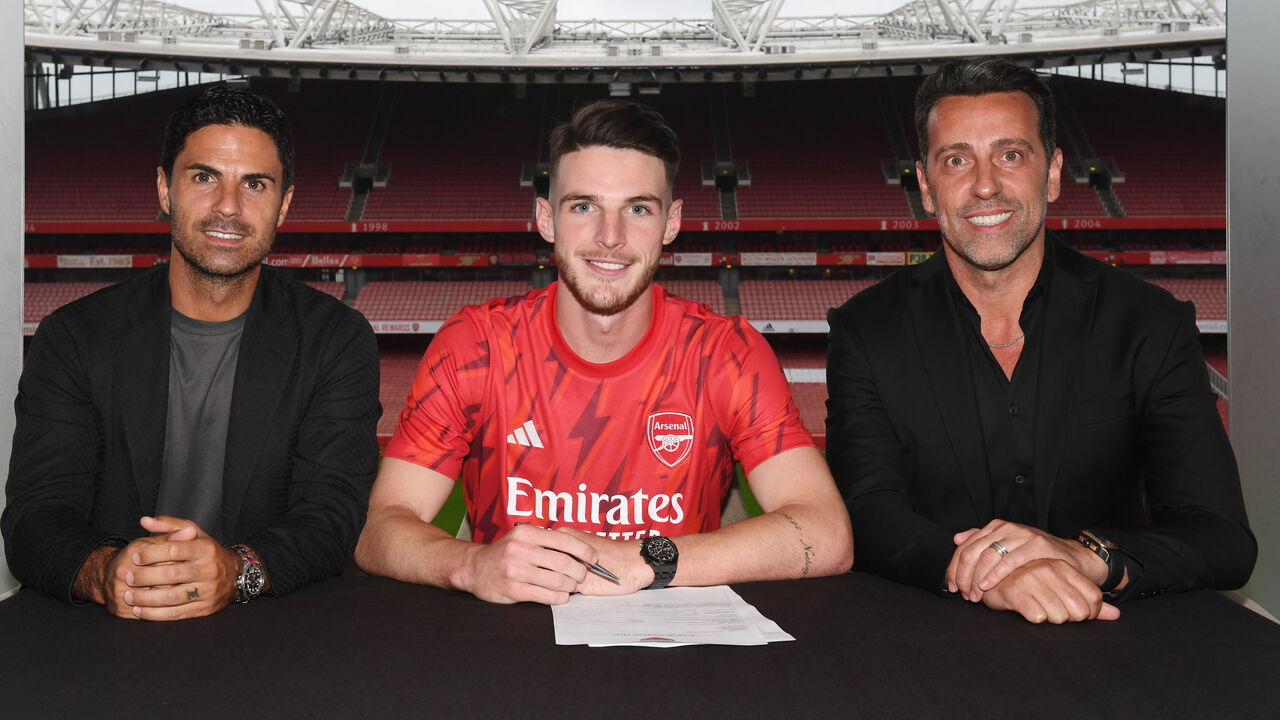
- Signed from West Ham United for reported £100M fee
Arsenal needed to make a big statement to keep the pressure on Manchester City and signal their intent to go from single-season title challenger to longstanding, consistent contender. Rice’s arrival was just about the biggest splash the Gunners could make to accomplish that. In beating City to Rice’s signature, Arsenal went toe-to-toe with the reigning champions and came out on top to sign one of the best all-around midfielders in the country.
4. Ansu Fati ?? Brighton & Hove Albion
- Signed from Barcelona on season-long loan
Before Brighton signed Fati, Spanish outlet SPORT claimed the attacker was reluctant to join Tottenham Hotspur on loan because he preferred a “top” club. Since Fati was born, Brighton have spent 15 seasons between England’s second and third tiers while Spurs have competed in 17 European campaigns. But it seems recency bias worked a charm for the Seagulls, who completed a low-risk yet potentially high-reward capture of the 20-year-old.
3. Dominik Szoboszlai ?? Liverpool
- Signed from RB Leipzig for reported €70M fee
It will be some time before we’re able to accurately judge whether Liverpool’s dramatic midfield overhaul was successful, but one thing is abundantly clear: Szoboszlai is a star. The Hungarian midfielder, one of the best pure ball strikers in world football, injects attacking verve, inventiveness, and set-piece excellence into Jurgen Klopp’s side. At only 22 years old, the former RB Leipzig standout should be a beloved figure at Anfield for many years.
2. Jude Bellingham ?? Real Madrid
- Signed from Borussia Dortmund for €103M fee
In any other year, this would easily be the best signing of the summer. Everybody wanted Bellingham when it became clear he’d depart Borussia Dortmund, and Real Madrid, already boasting the most loaded young midfield in football, doubled down and won the race for the coveted Englishman. Bellingham acclimated to Spain instantly, scoring five goals in his first four La Liga matches, and is already being serenaded by the Bernabeu faithful.
1. Lionel Messi ?? Inter Miami
- Signed from Paris Saint-Germain on free transfer
Sometimes, the hype is warranted. Messi single-handedly turned Inter Miami’s season around, notching 11 goals and eight assists over his first 11 appearances for the club. He reignited a flailing MLS campaign, helping his new side win the Leagues Cup and reach September’s U.S. Open Cup final. At 36, Messi isn’t preparing himself for retirement quite yet. He wants to conquer a new continent and transform an entire league first.
Honorable mentions: Youri Tielemans (Aston Villa), Gianluca Scamacca (Atalanta), Jefferson Lerma (Crystal Palace), Xavi Simons (RB Leipzig), Brennan Johnson (Tottenham)








